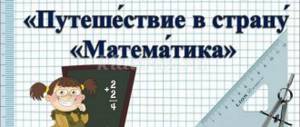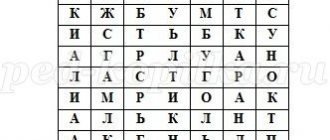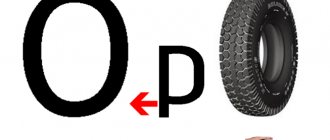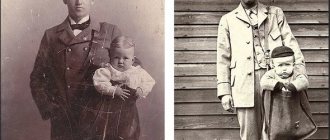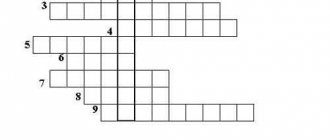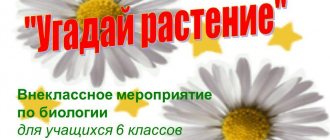Economic quiz. Competition “Experts of Terms” – presentation
Economic Quiz
Competition “Experts of Terms”
Economics is the science concerned with the behavior of economic agents in their use of limited resources, which can be applied in various ways in the spheres of production, distribution, exchange and consumption. the science concerned with the behavior of economic agents in their use of scarce resources, which can be applied in various ways in the spheres of production, distribution, exchange and consumption.
An enterprise is a separate technical, economic and social complex designed to produce benefits useful to society in order to make a profit. a separate technical, economic and social complex designed to produce benefits useful to society in order to make a profit.
Useful life is the period during which the use of a fixed asset is intended to generate income or serve to fulfill the goals of the business entity. the period during which the use of an object of fixed assets is intended to generate income or serve to fulfill the goals of the business entity.
Profession is an activity acquired in the process of professional training and accumulation of experience. activities acquired in the process of professional training and experience.
Price is a monetary expression of the value, value (utility) of a product for the consumer; a monetary expression of the value, value (utility) of a product for the consumer
Profit is the difference between income and cost (expense). the difference between income and cost (expense).
Specialty is a type of activity within a profession that is distinguished by the narrow nature of work activity, requiring the most in-depth knowledge and skills; a type of activity within the framework of a profession, which is distinguished by the narrow nature of work activity, requiring the most in-depth knowledge and skills
Competition “Find an antonym” An antonym is a word with the opposite meaning.
Words: bankrupt, bankrupt, poverty, poverty, income, income, import, import, wage worker, wage worker, accumulation, accumulation, public property, public property, wholesale trade, wholesale trade, consumption, consumption, supply. offer.
Competition "Economic Riddles"
Competition “Make up words (terms)” Kre, va, dend, ha, century, ob, ti, sel, li, tion, vi, at, for, di, dit. Cre, va, dend, ha, century, ob, ti, sel, li, tion, vi, at, for, di, dit.
Competition “Correct Answer” 1. How figuratively do they talk about low incomes? a) Modest; a) Modest; b) Shy; c) Shy; c) Shy; d) Indecisive.
2. Who, according to the proverb, pays twice? a) Kind; a) Kind; b) Generous; c) Stingy; c) Stingy; d) Forgetful.
3. Finish the folk wisdom: “Whoever scolds a product wants it... 3. Finish the folk wisdom: “Whoever scolds a product wants it... a) Buy; a) Buy; b) Sell; c) Throw it away; c) Throw it away; d) Pack it beautifully.
4. Continue the famous Russian proverb: “A good product is itself...”. a) Purchases; a) Purchases; b) Eats; c) Praises; c) Praises; d) Delivers.
5. What creates demand? a) Word; a) Word; b) Offer; c) Phrase; c) Phrase; d) Paragraph.
6. What does the accountant hand over at the end of each quarter? a) Delivery; a) Delivery; b) Office; c) Balance; c) Balance; d) Exams.
7. What becomes cheaper during inflation? a) Bread; a) Bread; b) Electricity; c) Oil; c) Oil; d) Money.
8. What do they say about a bankrupt businessman? a) Jumped out the window; a) Jumped out the window; b) Fell into a garbage chute; c) Flew into the chimney; c) Flew into the chimney; d) Fell through the ground.
9. What important economic abbreviation exists in our country? a) MNOS; a) MNOS; b) minimum wage; c) MLOB; d) MUHO.
10. What is the auction host holding in his hands? a) Saw; b) Hammer; c) Axe; d) Forceps.
11. What Latin verb does the word “advertising” come from? a) Shout out; b) To impose; c) Deceive; c) Deceive; d) Attract.
12. What role does advertising play in relation to commerce? a) Engine; a) Engine; b) Ignition; c) Brake; d) Silencer.
13. What is assigned to each Russian taxpayer? a)Pseudonym; b)Password; c) Individual number; c) Individual number; d) Barcode.
14. What tax was introduced by Peter I? a) On the mustache; b) On beards; c) On sideburns; d) On bald spots.
Competition “Make new words” from the word calculator
Question and answer competition
Problem Irina Nikolaevna had 10 shares. 200 rub. and government bonds - 5 pcs. 300 rub. What income did Irina Nikolaevna receive if the dividend amount was 15% and the interest on bonds was 8%? Irina Nikolaevna had 10 shares. 200 rub. and government bonds - 5 pcs. 300 rub. What income did Irina Nikolaevna receive if the dividend amount was 15% and the interest on bonds was 8%?
Results of the ECONOMIC QUIZ
Thank you for your attention!
Economic quiz “MONEY”
Economic Quiz:
"Monetary currencies of the countries of the world."
Economic Quiz
designed for children in grades 1-6. Participation in the quiz is a team task. Target:
1. introduce children to the names of monetary units of the countries of the world. 2. develop students’ curiosity, creative activity, intellectual and research skills. 3. cultivate a love of reading through interest in facts from books. 4. cultivate initiative and curiosity. 5. help increase children's interest in economic knowledge. Objectives: • study the history of the origin of money and its progressive role in the global economy to broaden the horizons of students; • formation of students' cognitive interest in the development of the international and Russian monetary system in a market economy; • development of students' creative activity in the process of studying complex historical and economic concepts through non-standard forms; • consolidate economic terms and concepts; • practice solving problem situations; • develop an explanatory form of speech, memory, attention, thinking; • cultivate interest in economic games; • create feelings of collectivism, mutual assistance, and a friendly attitude towards guests and each other; • improve the ability to listen carefully to an adult and your friends. Methods and techniques: children perform practical tasks, solve logical problems and problem situations; guessing riddles; use of artistic words; verbal instructions. “Welcome to the country of Economics!”; • divide children into small groups - teams
After each correctly completed task, the children are given a token. Today we’ll talk about the history of the origin of money and remember what monetary units there are in other countries of the world. You are ready? I
I won’t just give you simple and complex tasks...
Bartering will occur throughout the game
: you are the correct answers, and you are given tokens, which we will exchange at the end of the game... (for candy or something else).
Each group will need to earn as many tokens as possible. Without hands, without coins. Without coins, there is no purchase. Since ancient times, coins have been made of metal. People have a lot of this wealth. No. 1 task “Guess the riddles”
1. We are born into the world in abundance for everyone. Some have a lot of us, while others don't. (Money) 2. Small, round, rolled, once it runs away, you won’t catch up. (Coin) 3. Who made me does not say. Who knows me, he accepts me, And whoever knows me, he doesn’t let me into the yard. (Fake money) 4. One belly, four ears. (Wallet) 5. The book is sliding, two pages, and the middle is empty. (Wallet)
A story about the history of the origin of money. When money was invented and who invented it, no one knows. Many books have been written about the history of money. Several thousand years ago, people did not know what money was: they simply exchanged various items with each other. The first money was not like what we have today. Just imagine that somewhere bird feathers, grain, salt, tobacco, and dried fish were considered money. In Mexico, for example, cocoa beans were in use, and in Siberia and Canada - animal skins. Gradually, over the centuries, these items gave way to more convenient “money”. Such, for example, as the shells of the sea mollusk cowrie, which were used by the natives of the Maldives in the Indian Ocean. They are shiny, light, durable, the size of a hazelnut, and were also common in Asia, Africa, and Europe. Neither more nor less, these shells existed as a means of payment right up to the 10th century. Bronze money was widespread in Ancient China: it was cast in the form of knives, fish, bells, and swords. They were called Lyans. Scientists believe that the first coins familiar to us appeared in the Lydian kingdom (in a small state in the west of Asia Minor) in the 6th century BC, during the reign of Croesus, whose fabulous wealth was legendary. Coins were minted from a natural alloy of silver and gold. And they were called krezeids. Gold coins were minted in large quantities by the Persian kings, and then by Ancient Greece, Rome and their colonies. In Greece, the first gold coins were minted in the 4th century BC by the Macedonian king Philip II, father of the famous Alexander the Great. That's what they were called - philippics. Alexander the Great himself minted silver tetradrachm coins: on one side of the coin the head of Athena in a helmet was depicted, on the other - her symbols - an owl and an olive branch. These coins were called owls. The first coins of Ancient Rome, the production of which also began in the 4th century BC, were called asses. Later in Rome they began to mint a silver denarius, equal in value to 10 asses. A smaller coin was also in use - the sestertius - the fourth part of a denarius. Coin circulation in Russia (Kievan Rus) arose in the 9th–10th centuries. Coinage developed rapidly after the creation of a centralized Russian state in the 15th century. Much later paper money appeared. The first paper money, like paper itself, appeared in China. This happened in the 9th century. In Russia, the first paper money (assignats) were issued during the reign of Catherine II, in 1769. They didn't look much like money in our minds. These were rather bank obligations - receipts for receiving coins. The smallest gold coins in the world were coins called "pinheads": these were minted in South India around 1800 and weighed 1 grain (0.06 grams). The smallest paper banknote was issued by the Romanian Ministry of Finance in 1917: this 10-bani note measured 2.7 by 3.8 centimeters.
No. 2 task.
Current monetary units of different countries of the world. In the 90s of the last century, the republics of the former Soviet Union decided to leave it and become independent countries. New money appeared in each of them. And only in Russia the same monetary unit – the ruble – remained; only the appearance of banknotes and coins changed.
Exercise
: name which states own the monetary units. Monetary units: • litas (Lithuania); som (Kyrgyzstan); kroon (Estonia); • dram (Armenia); lion (Bulgaria); lat (Latvia); • Afghani (Afghanistan)
№ Task 3 “Gifts for friends.”
Dunno informs his friends about a trip to another country called Germany. “I will take 10,000 rubles with me to buy gifts for my friends.” Question: Will Dunno be able to buy gifts for friends with rubles? Why?
№ Task 4 “Explain the proverb.”
1. Those who save money live without need. 2. It wasn’t money that made us rich, but we made money. 3. Tears flow through gold. 4. A feather after a feather, and a feather will come out. 5. The goods are not according to the money - the money is not according to the goods.
Task No. 5 “Continue the sentence.”
1. Any work brings...(benefits).
2. My mother receives ... for her work, my grandmother ..., and my brother studies at the institute and receives ... (salary, pension, scholarship). 3. Money from different countries is called ... (currency). 4. The price in the store is higher than in ... (market). 5. The place where money is stored and accumulated is called ... (bank). No. 6 task quiz questions.
Now the quiz questions will be more serious. 1. Which animal always has money? Piglet: he has a snout.
2. In which river can the goods be packed? To Tara. Tara is a tributary of the Irtysh.
3. Name a Russian city and river whose names please the ears of all economists, bankers and entrepreneurs. Barysh is a city in the Ulyanovsk region, located on the river of the same name.
4. Where is the Sea of Crisis? On the moon.
5.Which bazaar has the biggest noise? At the bird market.
6.What is the difference between a bird market and a bird market? The market sells birds and other animals, and the bird market is a massive colonial breeding ground for seabirds.
7. The “economic” dog breed is... Dachshund. After all, a tax is also a set price.
8. What kind of box doesn’t hide money? The flower contains a water lily, its other name is yellow water lily.
9. Name the plants that all bankers know and adore. Centaury, golden tree, golden algae.
10. What is cheap but very expensive? Politeness.
11. The face of a retail outlet is... What? Showcase.
12. Name an event where the price is hammered. Auction.
13. What is the name of a coin necklace? Monisto.
14. What is the name of the new currency of the Old World? Euro.
15. Who counts millions as thousands? Billionaire.
No. 7 crossword puzzle: “What is money.”
Horizontally: 1. A special product that can be exchanged for any other goods and services. 4. Paper money. 6. Saving money for an expensive purchase. 8. Direct exchange of some goods for others. 9. Coin denomination. 10. The side of the coin on which the coat of arms or portrait is depicted. Vertical: 2. Inscription on the coin. 3. A person who collects and studies coins. 5. Monetary unit in Russia. 7. The other side of the coin. 11. A single monetary unit in European countries.
No. 8 task “Funny rhyming riddles.”
The product must definitely have... (price) If you worked all year round, It will be a tidy sum... (income). Streams are babbling, feet are wet - In spring it’s time to pay... (taxes). Just as there is no child without a mother, there is no sales without... (advertising). How many sausages you bought, They will show you exactly with an arrow... (scales) They will be intact, like in a tank, Your savings are in... (bank). Things will go smoothly for us: We made our (deposit) to the best bank. So that I could buy a house, I took out a loan, making... (deposit). In a treacherous sea of goods and prices, a business ship is sailing... (businessman) People go to the market: Everything is cheaper there... (products). We bought furniture, clothes, dishes. For this we took out a loan from the bank. Both the doctor and the acrobat are given for work... (salary). So that partners are not tormented by disputes, lawyers write for them... (contracts). I became the owner, brothers, of this plant... (action). -For a ruble - pennies, for dollars - cents, They run and run into the bank... (interest). Very tasty display window at the vegetable... (store). If you make a slight mistake, at the same moment the entire market will be captured by your... (competitor). Dad’s… (capital) began to generate income. There is a proclamation hanging in the bank for everyone: “Money in jars is being eaten up... (inflation)”
Task No. 9 “Money of the future.”
What do you think money will look like in the distant future? Please draw a Russian monetary unit that our great-grandchildren will use in the distant future. While completing the task, count the tokens. Well done boys! You all did a good job! You showed excellent knowledge of Economics! And get well-deserved prizes for it! Exchange tokens for candies.
